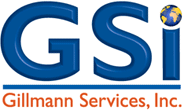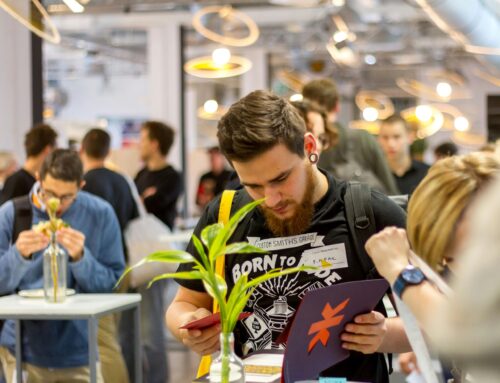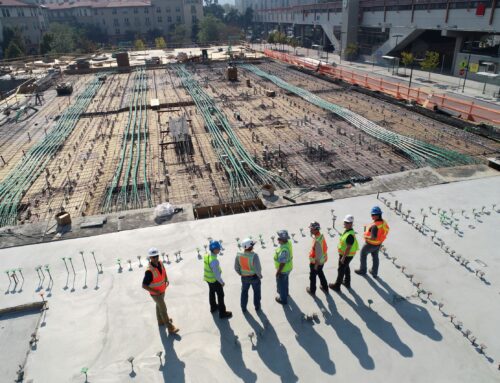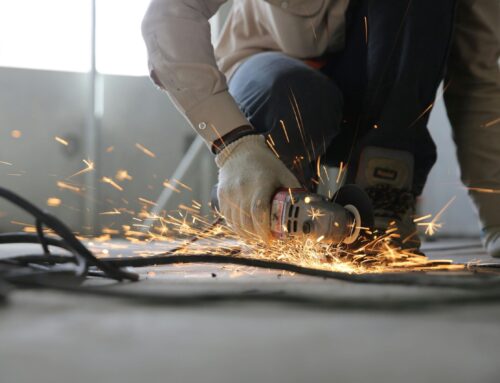The interview process is crucial for professionals in the skilled trades industries, including construction, manufacturing, mining, marine, and renewable energy. Each of these fields demands unique skills and experiences, making the interview a critical opportunity to showcase your expertise and fit for the role. Whether you’re a seasoned professional or stepping into the industry for the first time, nailing the interview process can significantly enhance your chances of securing a job in these competitive industries. Let’s dive into the essential preparations and tactics that can help you navigate the interview process with confidence and professionalism.
Before the Interview
Congratulations on scoring an interview! Your prospective employer may have many candidates to choose from, and your application stood out. Here are a few items to think about and prepare for in the days leading up to your interview:
- Research the Company: Understand the company’s history, projects, culture, and position in the industry. This shows genuine interest and helps tailor your interview responses.
- Review the Job Description: Be familiar with the skills and qualifications required for the job and be ready to discuss how your experience aligns with them. Carefully read the job description to understand the technical skills and experiences needed. This will help you anticipate the technical questions that might be asked.
- Prepare Your Resume: Ensure your resume is up-to-date and highlights relevant experience, certifications, and skills. Be ready to discuss any point in detail.
- Dress Appropriately: Plan what you will wear before the interview to ensure your clothes are clean and fit well. For skilled trades, business casual is usually appropriate. Avoid overly casual clothes, but also steer clear of formal attire unless specifically required. Comfort is critical, especially if you are given a tour of the facilities.
- Logistics: If the interview is in person, familiarize yourself with the location. Plan to arrive at an in-person meeting at least 10-15 minutes early. If it is a remote interview, ensure your technology is working properly and you can conduct it in a quiet space.
- Practice Common Interview Questions: Anticipate and practice responses to common interview questions using the STAR method (Situation, Task, Action, Result) for behavioral questions.
During the Interview
This is your time to show the interviewer you are the best person for the job. It’s also an opportunity for you to ask questions and ensure that the position is a fit for you. Here are some tips for a smooth interview:
- Body Language: Maintain good posture, make eye contact, and offer a firm handshake. These non-verbal cues express confidence and professionalism.
- Answering Questions: To showcase your experiences effectively, practice using the STAR method. This approach helps you structure your responses by describing the Situation, Task, Action, and Result. Using the STAR method demonstrates your problem-solving abilities and illustrates how your past experiences make you an ideal candidate for the role.
- Positive Attitude: Always be truthful about your skills and experiences. Misrepresenting your abilities can lead to issues down the line. Show enthusiasm for the role and the industry.
- Handling Nerves: If you feel nervous, take deep breaths and pause briefly to compose your thoughts before answering the questions.
Examples of interview questions
Be prepared to discuss specific technical skills and experiences and bring any necessary certifications or proof of skills to the interview. Depending on the trade, it may be helpful to refresh your knowledge of critical skills such as HVAC systems, electrical installations, carpentry techniques, or any specialized machinery relevant to the job. Also, be prepared to talk about your commitment to safety standards and any relevant training or certifications you have.
Some interviews may include practical tests or the request to explain how you would handle specific technical scenarios. If a skills test is part of the interview, bring the necessary equipment and wear appropriate clothing.
Here is an example of the types of questions you may be asked during your interview:
- Describe your experience with specific tools or equipment.
- Tell me about the most challenging project you’ve worked on.
- What processes do you follow to catch any mistakes in your work?
- Please describe a few projects you’ve worked on before.
- What equipment have you used in the past?
- How would you prioritize and manage multiple tasks and deadlines simultaneously?
- What problems did you identify in your last project, and how did you combat these?
- Have you ever encountered an employee disagreement onsite and if so, how did you deal with this?
Industry-Specific Tips
- Construction: Emphasize equipment experience, safety protocol adherence, and any relevant construction project experience.
- Manufacturing: Discuss your experience with manufacturing processes, quality control, and machinery.
- Marine: For marine roles, focus on your experience with maritime equipment, safety at sea, and any relevant certifications.
- Mining: Talk about your experience with mining equipment, safety in mining operations, and any specific mining projects you’ve worked on.
- Renewable Energy: Highlight your knowledge of renewable technologies, commitment to sustainability, and any relevant project experience in the renewable sector
Questions you should ask during the interview
At the end of the interview, your interviewer should give you an opportunity to ask questions. Prepare thoughtful questions about the role, the team you will work with, and the company’s future projects. This shows your interest in the role and helps you assess if the company is the right fit for you. Have insightful questions ready about the company, role, and future opportunities. This demonstrates engagement and interest in the position.
Some examples include:
- What are the company’s safety protocols and track record?
- Can you describe the typical career path for someone in this role?
- What types of projects will I be working on?
- How does the company handle project delays and budget overruns?
- What opportunities are there for professional development and training?
- What are the most common challenges faced at the sites I will be working on?
- What are the typical work hours, and is overtime expected or required?
- What are the next steps in the interview process?
After the interview
Send a thank-you note reiterating your interest in the position and reflecting on any key points from the interview. Here is an example of an email to send after your interview.
Subject: Thank You for the Opportunity
Dear [Interviewer’s Name],
Thank you for the opportunity to interview for the [specific position] at [Company Name]. It was a pleasure to meet with you and learn more about what your team is working on.
I enjoyed our discussion about [specific topic discussed, e.g., a particular project, the company’s growth plans, or a technical challenge]. I am confident that my skills in [mention relevant skills or experiences] align well with the team’s goals, and I am eager to bring my expertise in [specific area] to your company.
Please let me know if there is any further information I can provide to assist in the decision-making process. I look forward to the possibility of working together and contributing to the success of [Company Name].
Thank you once again for the opportunity. I hope to hear from you soon.
[Your Full Name]
[Your Contact Information]
Successfully navigating the interview process in the skilled trades industries requires thorough preparation, confident execution, and thoughtful follow-up. If you’re seeking further guidance or support in your career journey, consider reaching out to Gillmann Services. We are dedicated to helping skilled professionals like you find rewarding opportunities and succeed in their careers. Good luck, and may your skills and professionalism shine through in your next interview!






